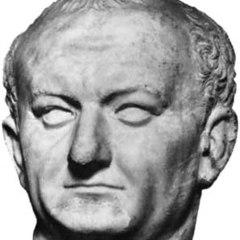Marcus Aurelius Quotes - Page 27

Marcus Aurelius, Epictetus, Lucius Annaeus Seneca (2015). “Stoic Six Pack: Meditations of Marcus Aurelius The Golden Sayings Fragments and Discourses of Epictetus Letters from a Stoic and The Enchiridion”, p.60, Lulu.com
"Meditations" by Marcus Aurelius, Book IV, (8), (c. 161 - 180 AD).
Marcus Aurelius (Emperor of Rome) (1887). “The Meditations of Marcus Aurelius”
A little flesh, a little breath, and a Reason to rule all - that is myself.
c. AD 170-180 Meditations, bk.2, no.2 (translated by M Staniforth).
Marcus Aurelius Antoninus (Emperor of Rome) (1887*). “The Meditations: Translated from the Greek”
Epictetus, Marcus Aurelius, Lucius Annaeus Seneca (2016). “Stoic Six Pack: Meditations of Marcus Aurelius, Golden Sayings, Fragments and Discourses of Epictetus, Letters from a Stoic and The Enchiridion”, p.92, Enhanced Media Publishing
"Meditations" by Marcus Aurelius, Book II, (14), (c. 161 - 180 AD).
Whatever anyone does or says, I must be emerald and keep my colour.
Epictetus, Marcus Aurelius, Lucius Annaeus Seneca (2016). “Stoic Six Pack: Meditations of Marcus Aurelius, Golden Sayings, Fragments and Discourses of Epictetus, Letters from a Stoic and The Enchiridion”, p.74, Enhanced Media Publishing
"Meditations". Book by Marcus Aurelius. Book II, 11,
"Meditations" by Marcus Aurelius, Book V, (21), (c. 161 - 180 AD).
"Meditations" by Marcus Aurelius, Book IV, (3), (c. 161 - 180 AD).
And thou wilt give thyself relief, if thou doest every act of thy life as if it were the last.
Epictetus, Marcus Aurelius, Lucius Annaeus Seneca (2016). “Stoic Six Pack: Meditations of Marcus Aurelius, Golden Sayings, Fragments and Discourses of Epictetus, Letters from a Stoic and The Enchiridion”, p.25, Enhanced Media Publishing
Marcus Aurelius (2012). “Meditations”, p.33, Courier Corporation
Emperor of Rome Marcus Aurelius (2012). “Thoughts of Marcus Aurelius Antoninus”, p.214, tredition
Marcus Aurelius (2006). “Meditations”, p.53, Penguin UK
Marcus Aurelius (2013). “The Meditations of Marcus Aurelius”, p.31, Read Books Ltd
Blot out vain pomp; check impulse; quench appetite; keep reason under its own control.
"Meditations" by Marcus Aurelius, Book IX, (7), (c. 161 - 180 AD).






